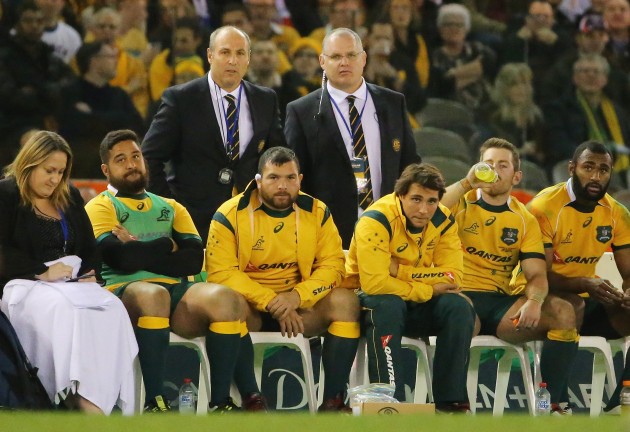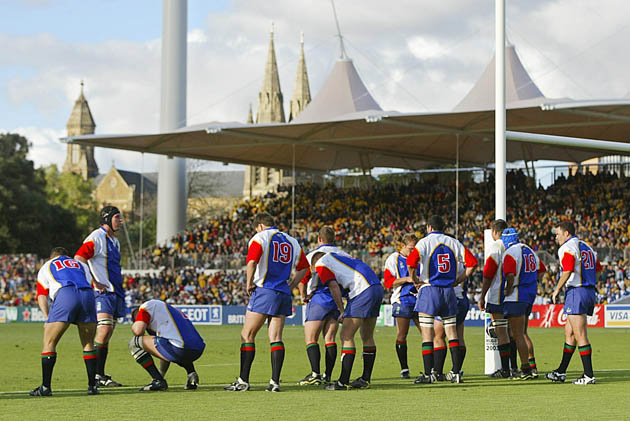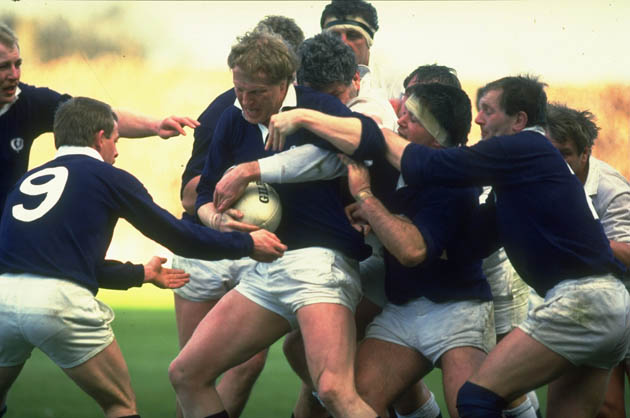After fans and viewers slept through a turgid 80 minutes in Melbourne between Australia and France - which a produced a pitiful six points - we delve into to history books to bring you five more shockers
So much for Aussie innovation and French flair. Last weekend’s second Test in Melbourne was one of the biggest borefests in modern memory. A scoreless first half followed by a similarly dire second period, although at least the Wallabies did manage to land a couple of penalties. By the final whistle most of the 27,000 crowd were either asleep or in tears, trying to remember the last time Test rugby had been treated to such a tedious spectacle. Let us help. Here are five more matches that are best forgotten.
Scotland 18 Wales 28, 2013
Referee Craig Joubert was largely to blame for this bore of a match that broke the record for the number of kickable penalties awarded in an international. The South African whistle-blower gave 28 penalties – 16 against Scotland and 12 against the visitors – and 18 of them were within kicking distance of the posts. Greg Laidlaw landed six of his eight attempts while Leigh Halfpenny potted seven from ten and also converted Richard Hibbard’s try. The set-piece was similarly stultifying with only three completed scrums in 80 minutes. “We tried to do what the referee wanted but every time we did something else would happen,” complained Scotland hooker Ross Ford.
Australia 142 Namibia 0, 2003
This World Cup group match was so one-sided the Adelaide crowd lost interest long before the final whistle. Chris Latham scored the Wallabies’ first try after just two minutes and there were 21 more in the remaining 78 minutes. Latham (who finished with five tries) Lote Tuqiri and Matt Giteau all scored hat-tricks against an understrength Namibian side whose leading players were being rested for the game against Romania five days later. The result was the biggest winning margin in World Cup history but the torrent of tries did the sport no favours.
Scotland 6 England 9, 1988
It wasn’t just the players’ pride that got dented as a result of this colourless Calcutta Cup encounter. Late on Saturday night England’s Dean Richards and Scotland’s John Jeffrey took the famous old trophy on a tour of Edinburgh pubs, returning a few hours later with something that looked more like a shield than a cup. As for the game itself, it was in the words of one Scottish newspaper “a snoozathon” with all the points coming from penalties. “England killed the ball at every opportunity,” muttered Scotland captain Gary Callender. “ They didn’t seem to mind just moving from one scrum to the next.”
Scotland 0, Wales 6, 1963
The brutal winter of 1963 was known as the ‘Big Freeze’ but that was still no excuse for the numbing display of rugby served up between Scotland and Wales in that year’s Five Nations. Wales’ Clive Rowlands was the ringmaster of boredom, the scrum-half kicking for touch continuously in a game that contained 111 line-outs. Admittedly, Rowlands did land a sweet drop goal but that was the only highlight of a game which the Daily Telegraph labelled “the ultimate in non-handling rugby”.
England 0 Wales 0, 1962
Sometimes the scoreboard doesn’t tell the whole story and sometimes it does, and it was sure telling the truth on this occasion. There was a nasty wind throughout, what used to be called the “Twickenham Twirl”, but the pointless encounter emphasised the generally sterile style of British rugby in the early 1960s. Wales were the dominant side but full-back Kel Coslett missed five attempts at goal on his debut while fly-half Alan Rees (also winning his fist cap) was wide with four drop goals. Having moved the Twickenham crowd to tears, the pair did the decent thing and moved to rugby league later that year.








